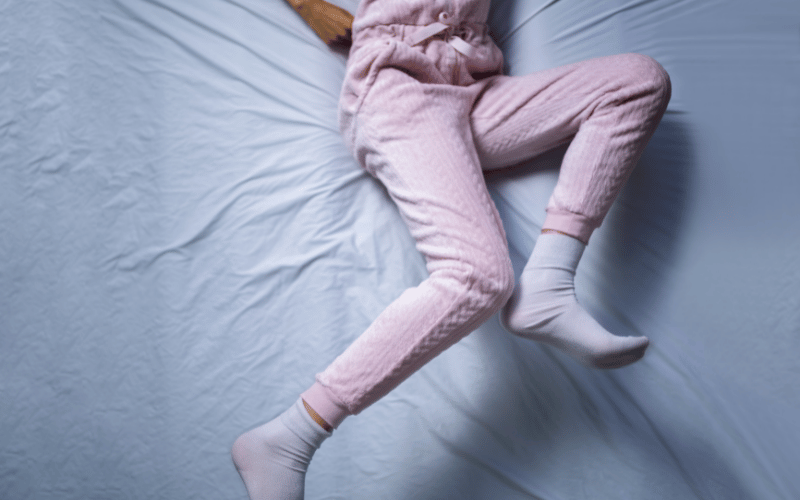Cause 7: Restless Leg Syndrome (RLS)

Restless Leg Syndrome sounds almost whimsical, like a dance one might do at midnight. But anyone who’s experienced it knows it’s far from a jovial jig. It’s characterized by an irresistible urge to move the legs, especially at night. This nagging sensation, often described as crawling or tingling, can throw a wrench into the machinery of restful sleep, leading to frequent awakenings and, yes, an increased risk of sleepwalking.
While the urge to move the legs is the hallmark of RLS, it’s not the sole symptom. Discomfort, itching, or even pain can accompany that urge. And these sensations aren’t just restricted to the legs; sometimes, arms get in on the action too. The result? A fragmented sleep pattern that teeters on the edge of deeper sleep phases, making one prone to noctambulism.
It’s all in the head, or so they say. When it comes to RLS, there’s some truth to this. Researchers believe that imbalances in dopamine, a neurotransmitter, play a role. Dopamine acts as a messenger, transmitting signals that control muscle movement. An imbalance can lead to involuntary movements, which, when combined with the brain’s semi-awake state during disrupted sleep, can be a ticket to sleepwalking.
While the exact cause of RLS remains elusive, certain triggers have been identified. Pregnancy, certain medications, and even alcohol can heighten the sensations and symptoms. The more these triggers are in play, the more fragmented the sleep, increasing the likelihood of nocturnal wandering episodes.
Combatting RLS is not about resigning to restless nights. Several treatments, from medication to lifestyle changes, have proven effective. Regular exercise, a consistent sleep routine, and even warm baths can help mitigate symptoms. And when the legs find their peace, the chances of night-time excursions, like sleepwalking, diminish. (7)